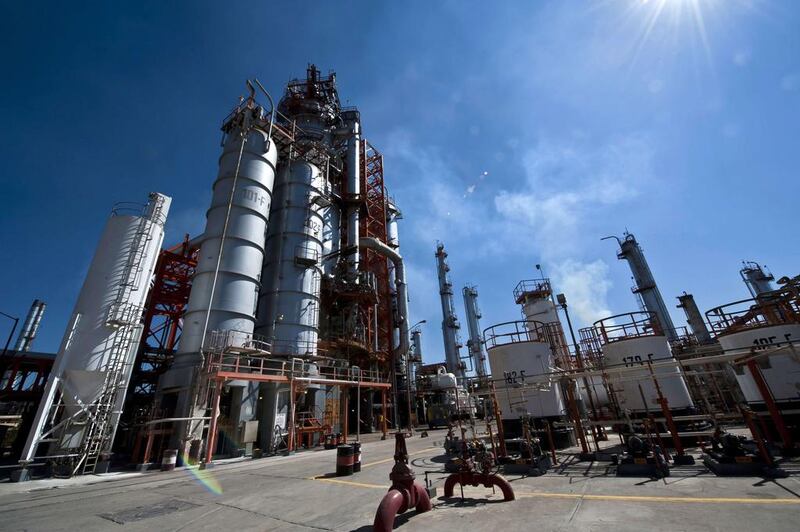Oil ministers overseeing the effectiveness of a multi-country deal to curb output and lift world oil prices yesterday urged further moves by the group to strengthen that deal and extend it beyond it beyond the first quarter of 2018.
At a meeting yesterday in St. Petersburg, the members of the oversight committee set up by the 14 Opec and 12 other oil-producing countries to monitor the deal said the scheme's effectiveness should be seen more in the second half of the year than has so far been the case.
But the committee also sought measures to curb output further, particularly by exempt members Libya and Nigeria, and to extend it past its current expiry date.
The UAE's energy minister, Suhail Al Mazrouei, said in an interview with Sky News Arabia that the supply-demand balance should improve later this year. He added that it was premature to talk about extending the deal's terms, which would be up for discussion when the full group next meets in November.
Yesterday's meeting, hosted by Russia's oil minister Alexander Novak, was the fourth this year by the joint ministerial monitoring committee (JMCC), which was set up to assess evidence of compliance to last year's deal, under the terms of which Opec – excluding Nigeria and Libya – and 12 other countries agreed to cut world output by a total of about 1.8 million barrels per day.
Saudi Arabia and Russia are the de facto leaders of the deal and collectively bear the largest load.
The JMCC is is made up of Algeria, Kuwait and Venezuela, and two non-Opec countries – Russia and Oman. Representatives from Saudi Arabia also usually attend.
A communique issued by the committee said that overall compliance had been high, above 90 per cent, but that “there is still room for improvement by some participating producing countries, and ... all participating producing countries must promptly reach full conformity”, without naming individual countries.
Before the meeting, there had been much back and forth about whether members would demand that Nigeria and Libya – which have been exempt because of the deep cuts already suffered because of sabotage and other conflict damage – should be brought into the deal after output in both countries surged in recent months.
But the committee acknowledged “the upside limitations of both countries beyond their current production levels”, adding that “once their production levels stabilise, participating producing countries should further co-operate in a manner that contributes to the stabilisation of the market”. The communique made reference to Nigeria taking some unspecified action when its output reaches 1.8 million barrels per day.
Oil prices were up by about 1 per cent on the day, with world benchmark North Sea Brent trading at US$48.54 per barrel late yesterday afternoon, up 48 cents. Prices had been firm after the deal in December and through March, trading in the mid-to-high US$50s per barrel, but then weakened and fell to a post-deal low below $45 late last month, since when they have been trading between that level and $50.
Analysts have generally been lowering their oil price forecasts as the year has progressed and many now think Opec –particularly Saudi Arabia – is trying to reach a fine balance so that prices are propped up but do not get so high they encourage a flood of production back on to the market.
“Opec will want higher prices to support domestic budgets, but not excessively high that it leads to global oil demand erosion,” said Emma Richards, senior oil and gas analyst at BMI Research. “A high oil price could derail essential economic reform programmes needed to diversify oil-based economies of key Opec members,” while a collapse could risk economic stability altogether.





